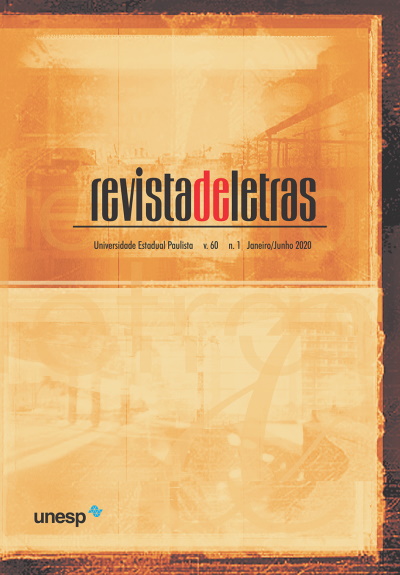Antonio Di Benedetto en las orillas.
Presentismo existencialista en Zama (1956).
Palavras-chave:
Modernidad, Existencialismo, Presentismo, Civilización, BarbarieResumo
En el siguiente artículo de investigación proponemos una revisión de la novela fundamental de Antonio Di Benedetto, aquella que más ha influido en el desarrollo de la novela histórica posterior, Zama, publicada en 1956. Partimos, para ello, de una doble perspectiva; de entrada, comentaremos algunos elementos metafóricos que se despliegan al principio de la novela, en especial en relación con el simbolismo del río Paraná, que condensa el binomio de la civilización y la barbarie, natural de la cultura argentina desde Domingo Faustino Sarmiento. A partir de ahí, profundizaremos en la dimensión histórica del existencialismo porteño de cara al “régimen de historicidad moderno”, concepto que acuñó el historiador francés François Hartog pues lejos de dejarse engañar por la falacia del progreso, pensaría el tiempo como un puro presente. Este existencialismo, pues, estaría en relación, primero con el pensamiento posmetafísico, pero también haría de puente filosófico hacia la comprensión que de la posmodernidad tiene Gianni Vattimo, una cultura que se caracterizaría, en cambio, por un “régimen de historicidad presentista”.
Downloads
Publicado
Edição
Seção
Licença
Os manuscritos aceitos e publicados são de propriedade da Revista de Letras. Os originais deverão ser acompanhados de documentos de transferência de direitos autorais contendo assinatura dos autores.
É vedada a submissão integral ou parcial do manuscrito a qualquer outro periódico.
A responsabilidade do conteúdo dos artigos é exclusiva dos autores.
É vedada a tradução para outro idioma sem a autorização escrita do Editor ouvida a Comissão Editorial.

